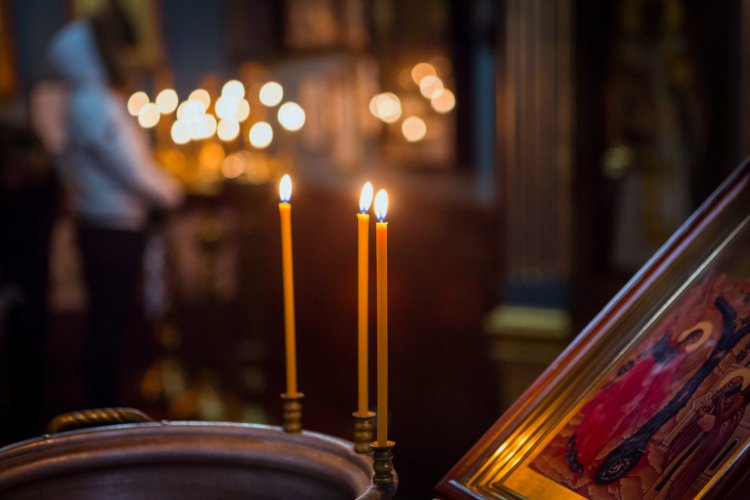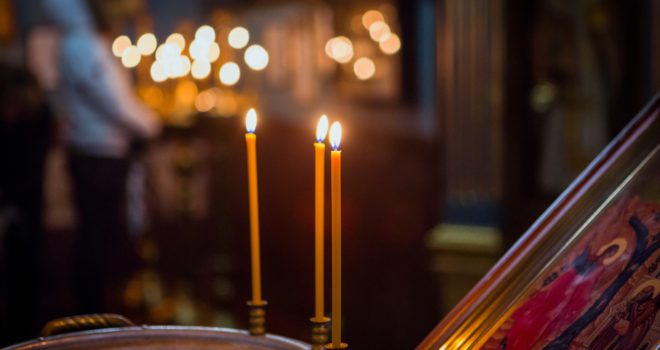Christ Sets Us Free to Follow Him
Scripture reflections for the 13th Sunday in Ordinary Time 1Kgs 19:16, 19-21; Gal 5:1,13-18; Lk 9:51-62 “Go back, have I done anything to you?” There is a radical change in the disposition of Elisha when the Prophet Elijah cast his cloak on him. He went from asking for some time to kiss his parents goodbye first […]



Scripture reflections for the 13th Sunday in Ordinary Time
1Kgs 19:16, 19-21; Gal 5:1,13-18; Lk 9:51-62
“Go back, have I done anything to you?”
There is a radical change in the disposition of Elisha when the Prophet Elijah cast his cloak on him. He went from asking for some time to kiss his parents goodbye first to making a decisive and generous act, “He took the yoke of oxen, slaughtered them…boiled their flesh, gave it his people to eat. Then he left and followed Elijah as his attendant.”
Why this immediate change? It appears the words of Elijah touched him deeply, “Go back! Have I done anything to you?” He probably sensed that God was not just calling him to be Elijah’s successors. God was also doing something to him and in him, allowing him to share in the power and authority of Elijah. He was generous and bold in his response to his vocation as long as he believed that the God who was calling Him was also acting on him.
When God calls us for a specific task, He also does something to us and in us. God does not call us to follow Him as if we were lifeless stones, incapable of any interior change or growth. One thing that God does when He calls us is that He labors continuously to set us free from all that hinders us from responding to His call with generosity and perseverance. In short, He labors for our continuous growth in freedom.
This is the message of St. Paul to the Galatians, “Brothers and sisters: For freedom Christ has set us free; so stand firm and do not submit again to the yoke of slavery. For you were called for freedom” (Gal 5:1,13). The challenge for us is to receive that freedom as a gift and make good use of it.
If we abuse that personal freedom, “using it as an opportunity for the flesh,” we will experience personal degradation, mutual destruction, and eventually, communal disintegration, “But if you go on biting and devouring one another, beware that you are not consumed by one another.”
However, if we make good use of that freedom, we actually become freer to love and serve others, “Serve one another through love.” We can offer mutual service and support for each other and enhance the community only when we make good use of the gift of freedom.
Our Lord Jesus Christ makes strong demands on us as His disciples because He does not just call us to be His disciples. He also does something to us and in us that He only He can do – He gives us a share in His own freedom as God’s beloved Son, “To those who received Him, who believed in His name, He gave power to become children of God” (Jn 1:12). Jesus sets us free and labors to increase that freedom in us as we respond to our vocations.
We experience inner resistance in our commitments to Him because we are so focused on the costs, inconveniences, uncertainties, sacrifices, etc., in our calling. The inner resistances prevail because we ignore the many ways in which the Lord labors to bring us to the place of inner freedom necessary for our fidelity to our commitment to Him.
Lk 9:51-52 shows us three ways in which our lack of inner freedom leads to poor commitment to Christ as His disciples.
We have those who do not make any commitment at all as Jesus’ disciples. They are like snowflakes in their passing fervor. They only speak empty enthusiastic words, “I will follow you wherever you go.” They fall silent when the Lord speaks of the constant demands and uncertainties in following Him, “Foxes have dens and the birds of the sky have nests, but the Son of Man has nowhere to rest His head.”
This first group speaks a lot and makes lots of empty promises but lacks any action in discipleship. They are not ready to sacrifice anything. They are afraid of what discipleship may cost them. They are slaves to their comfort and security. They want to be in control of what happens to them as they follow the Lord. They are repulsed by any idea of uncertainty as Christ’s disciples.
There are those who postpone making a commitment as disciples, “Lord, let me go first and bury my father.” Instead of committing when they are called, this type is waiting for an illusory better, and more convenient time to commit.
They may claim that they are not ready now or that they are not good or holy enough to commit. They may also claim that they want to resolve some personal or family issues first before making a commitment. Jesus rejects the idea that there is more favorable time to commit than the present moment, “Let the dead bury their dead. But you, go and proclaim the Kingdom of God.”
Lastly there are those who make half-hearted commitments because of the past, “I will follow you, Lord, but first let me say farewell to my family at home.” These ones keep looking back at what they have left already. They become slaves of the past as it keeps them from fully committing to Jesus and to His kingdom.
This last type is fixated on things of the past – sins, failures, relationships, pleasures, pains, hurts, etc. It may even be the past achievements and successes that they cannot seem to get enough of. Whatever it is, something in the past keeps them from committing to Jesus Christ in the present moment. These past things do not allow them to enter God’s kingdom, “No one who sets a hand to the plow and looks to what was left behind is fit for the kingdom of God.”
My dear brothers and sisters in Christ, the only way that we can overcome these forms of inner resistances is to have faith that we have been called by God and He has and will continue to work His freedom into our hearts. Jesus Christ became one like us, suffered, died and rose from the dead so that we have the freedom of His Spirit in us and so be His authentic disciples, ready to be free like HIm, who “resolutely determined to journey to Jerusalem” (Lk 9:51).
✠
Photo by Olga Kononenko on Unsplash














